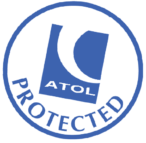Capital: Stockholm
Time zone: GMT + 1 (GMT + 2 during the summer)
Telephone services: Country Code: 46 Outgoing Code: 009
Emergency telephone numbers: Dial 112 anywhere in the EU to reach the emergency services. Additional local numbers:-All services – 90 000 / 112
Tourist information: Swedish Travel and Tourism Council, 11 Montagu Place, London W1H 2AL Tel: (020) 7724 5868 or (01476) 578 811 (24 hour brochure request line) Fax: (020) 7724 5872.
Passport information: Valid passport required by all except: Nationals of Austria, Belgium, France, Germany, Greece, Ireland, Italy, Luxembourg, The Netherlands, Portugal, providing they hold a valid national ID card. (for a stay of up to 3 months). Nationals of Denmark, Finland, Iceland, and Norway holding travel documents issued for travel between these countries. Nationals of Liechtenstein and Switzerland providing they hold valid national ID cards (for a stay of up to 3 months). Requirements may be subject to short-term change. Contact the relevant authority before departure.
Visa information: Required by all except: Nationals of Australia, Canada, USA, EU, and Japan. Nationals of Andorra, Argentina, Bahamas, Barbados, Belize, Bolivia, Botswana, Brazil, Brunei, Chile, Columbia, Costa Rica, Cyprus, Czech Republic, Dominica, Ecuador, El Salvador, Grenada, Guatemala, Honduras, Hong Kong (UK Passport holders), Hungary, Iceland, Israel, Jamaica, Kenya, Kiribati, South Korea, Lesotho, Liechtenstein, Malaysia, Malta, Malawi, Mauritius, Mexico, Monaco, Namibia, New Zealand, Nicaragua, Norway, Panama, Paraguay, Poland, St Lucia, St Vincent & the Grenadines, San Marino, Seychelles, Singapore, Slovak Republic, Slovenia, Solomon Islands, Swaziland, Switzerland, Trinidad & Tobago, Tuvalu, Uruguay, Venezuela, and Zimbabwe.
Health information: No information is available at present. Please seek medical advice prior to travel.
Food & drink: Water is considered drinkable, normal precautions should be observed with food.
Currency: Swedish Krone (Skr) = 100 øre Personal cheques can be cashed in Swedish banks through the Eurocheque system.
All major credit cards are accepted. Travellers cheques, preferably in US dollars, are widely accepted.
ATM availability: Over 2 000 locations.
Cost of living: Expensive – similar to other Scandinavian countries.
Languages: Swedish. Lapp and English are also spoken.
Weather: The climate is mild, which varies according to its great length. Summers can be very hot but get shorter further North. The midnight sun can be seen between mid- May and mid-June above the Arctic circle. Winters can be bitterly cold particularly in the North.
Electricity: 220 volts 3 phase AC, 50 Hz. 2 pin plugs are used.
Post: 3 -4 days. Poste Restante is widely available.
Transport: RAIL: There is an extensive rail system. The network is more frequent in the South where there are more people. ‘Scanrail’ cards etc can be purchased. ROAD: Sweden’s roads are well maintained and relatively uncrowded. BUS: Cheap and efficient services are available to all towns. TAXI: Available in all towns and airports. CAR HIRE: Available in most towns and cities.
Special information: Normal social courtesies should be observed. Casual dress is acceptable for social occasions. Sweden is regarded as one of the safest countries in the world and crimes against foreigners are rare.

